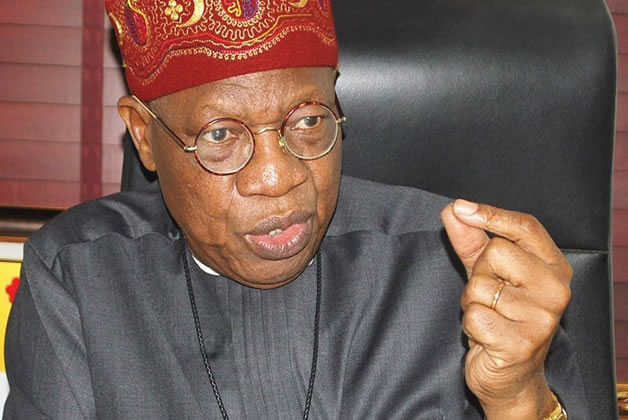On Monday, 12 April 2021, the co-founder of Twitter, Jack Dorsey announced that Twitter is now present on the African continent, and will be laying its head in Ghana.
https://twitter.com/jack/status/1381609431381766147?s=19
Why Ghana?
Twitter had indicated that its attraction for Ghana was due to the country’s democratic virtues and respect for freedom of speech and online freedom. These are significant factors that define the hallmark of any decent society. Twitter’s Kayvon Beykpour and Uche Adegbite explained:
As a champion for democracy, Ghana is a supporter of free speech, online freedom, and the Open Internet, of which Twitter is also an advocate. Furthermore, Ghana’s recent appointment to host The Secretariat of the African Continental Free Trade Area aligns with our overarching goal to establish a presence in the region that will support our efforts to improve and tailor our service across Africa.
The Ghanaian President, Nana Akufo-Addo, was full of excitement. In acknowledging the news as an excellent one, he flaunted what he perceived as confidence being reposed in Ghana by Twitter. He noted that Twitter’s presence in Ghana will help in developing the country’s technology sector. He was right, absolutely.
Why not Nigeria?
Thus, the news of Twitter’s presence in Ghana was well received in Ghana but not in Nigeria. Expectedly so. According to available information, Nigeria records over 25 million Twitter users, as against about 8 million users in Ghana. Nigeria has everything it takes to be more favoured in the eyes of Twitter when considering where to site its headquarters in Africa. But Twitter snubbed the big African nation. The Company preferred Nigeria’s neighbour, Ghana.
In search for answers, one may be tempted to look closely on the reasons cited by Twitter for choosing Ghana: “As a champion for democracy, Ghana is a supporter of free speech, online freedom, and the Open Internet.” Perhaps, one might be tempted to think that Twitter was indirectly saying that Nigeria lacks the identified virtues.
Many Nigerians blamed the Nigerian Government and her leaders for losing out. But Nigeria’s Minister of Information and Culture, Lai Mohammed, has reacted in a similar fashion on behalf of the Federal Government of Nigeria. He blames Nigerians for Twitter snub. According to him, Nigerians are the ones demarketing Nigerians to the world. An act he believes to be unpatriotic. He cited the #EndSARS protest as one of the reasons.
The Minister lamented, while identifying the real impact of Nigeria’s snub by Twitter thus:
You can imagine the kind of job opportunities that siting that headquarters in Nigeria would have created, the kind of visibility it would have given Nigeria but we destroyed it. It is what the insiders say about their country that the outsider will use to judge and condemn the country.
Interestingly, Lai Mohammed appears to be mocking Nigerians like a parent would do to a child who failed in life because the child refused to imbibe and assimilate proper home-training. It remains a fact, not too exciting, that many Nigerians who feel frustrated and oppressed do not seem to care in crying out to the world in the face of the injustices and bad governance. But the Minister appears to see nothing wrong in the fact that the Nigerian Government herself does not appear to have particularly led the way for the promotion of democracy, rule of law and respect for human rights, in line with Section 14(1) of the 1999 Constitution (as amended) which provides that “The Federal Republic of Nigeria shall be a State based on the principles of democracy and social justice.”
Twitter’s decision not a commercial decision?
Lai Mohammed also argued that, looking at the figures (Nigeria’s 25.4 million Twitter users as against Ghana’s 8 million users), Twitter’s decision to lay its bed in Ghana and lie with the nation, was not a commercial and business decision. However, this argument appears unattractive considering the fact that the Tech Giants are not oblivious of the population figures. Twitter is aware that to take advantage of the Nigerian market, it does not necessarily need to site its headquarters in Nigeria. Being in the African continent and quite close to Nigeria is sufficient. The Company has highlighted its blueprint for doing business in Africa. It has also demonstrated that it cherishes some other valuable virtues, aside monetary considerations, which it desires to enjoy in a place it wishes to settle. Besides, Twitter in Ghana doesn’t mean Twitter for Ghana alone. It also means Twitter for the African region as a whole. Twitter confirmed this when it stated:
As part of our long-term commitment to the region, we’ll continue to explore compelling ways we can use the positive power of Twitter to strengthen our communities through employee engagement, platform activation, and corporate giving.
In the aftermath of the news of Twitter presence in Africa through Ghana, the lessons talked about by Lai Mohammed are actually for everyone – Nigerians and the Nigerian leaders. The leaders must lead the way by laying good examples. This is what true leadership means. The leaders must define patriotism by the decisions they make, and those being led would naturally fall into line.
Featured Image Credit: Punch.














